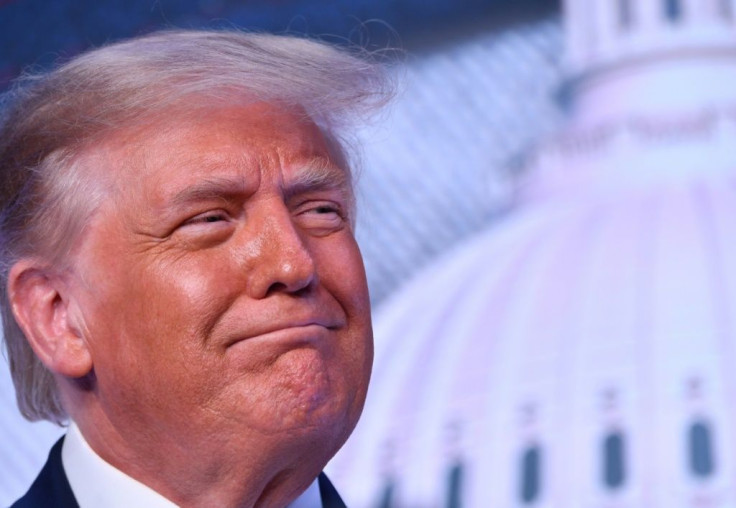No-Platform Republicans Embracing President Trump’s Agenda Without Question

KEY POINTS
- Trump's support among Republicans stood at 90% this month
- Republicans have turned their backs on globalization and free trade in favor of populism and nationalism
- Newt Gingrich calls Trump "anti-liberal"
Republicans are taking a different tack for the 2020 election: They’re not adopting a platform to lay out a clear vision of what the party hopes to accomplish in the next four years. Instead, delegates to the Republican National Convention, which kicks off Monday, adopted a statement during the weekend throwing all-in with President Trump.
Republicans blamed the lack of a platform on the impact of the coronavirus pandemic, which forced a significant cutback on the number of delegates able to attend the convention in Charlotte, North Carolina.
The convention committee said the lack of platform really is not a big deal and accused the media of misrepresenting the implications.
“The RNC enthusiastically supports President Trump and continues to reject the policy positions of the Obama-Biden administration, as well as those espoused by the Democratic National Committee today; therefore, be it resolved that the Republican Party has and will continue to enthusiastically support the president’s America-first agenda, … [and] the 2020 Republican National Convention will adjourn without adopting a new platform until the 2024 Republican National Convention,” the statement said, adding any effort to amend the 2016 platform will not be accepted.
The statement mentioned no specific policies or goals.
Today’s Republican party is not the same political organization that nominated Ronald Reagan in 1980. Rather, it has embraced populism and nationalism, abandoning the free trade and globalization principles that guided it for decades. After John McCain was defeated in 2008 and Mitt Romney in 2012, party leaders talked about expanding the tent to welcome new adherents. But rather than expanding its reach, the party shifted strongly right, abandoning the center.
Hudson Institute fellow Christopher DeMuth told the Wall Street Journal the 2008 an 2012 losses were the result of conservatives losing touch with voters, ignoring the economic “pain and suffering that was going on in the country.”
Trump is not a conservative – and doesn’t pretend to be. Former House Speaker Newt Gingrich described the president as “anti-liberal,” telling the Journal Trump is “a commonsense, practical person who understands how much of modern political correctness is just total baloney.” Former Trump campaign chairman Corie Lewandowski describes Trump as a “pragmatist.”
Still, there are Republicans who have not jumped on the Trump train. The so-called never Trumpers represent a rebellion but it remains unclear whether the movement is large enough to gain traction.
Trump repeatedly has touted his standing among core Republicans. The latest Gallup daily tracking poll, conducted July 30-Aug. 12, indicates his approval rating is 90%, down from 94% in January before the coronavirus pandemic hit. His overall approval rating among all voters is 42%, the poll indicated.
The Lincoln Project and Republican Voters Against Trump are mounting a campaign not only to oust Trump but to defeat his supporters in Congress. Among the targets are Sens. Susan Collins of Maine and Lindsey Graham of South Carolina, who was a vociferous critic of Trump during the 2016 primary season but then turned staunch ally, a move that seems to have threatened his prospects of reelection, with the Cook Political Report moving his prospects from likely to lean Republican.
The Trump campaign has dismissed the rebellion as evidence “the swamp” is attempting to take back control of the government.
“President Trump is the leader of a united Republican party where he has earned 94 percent of Republican votes during the primaries – something any former president of any party could only dream of,” Trump campaign spokeswoman Erin Perrine said in an email to the Washington Post.
The anti-Trumpers had little impact in 2016 when they could not bring themselves to support Democratic nominee Hillary Clinton. This time around, however, leading members of the movement are actively working to elect Democratic standard-bearer Joe Biden.
© Copyright IBTimes 2025. All rights reserved.






















